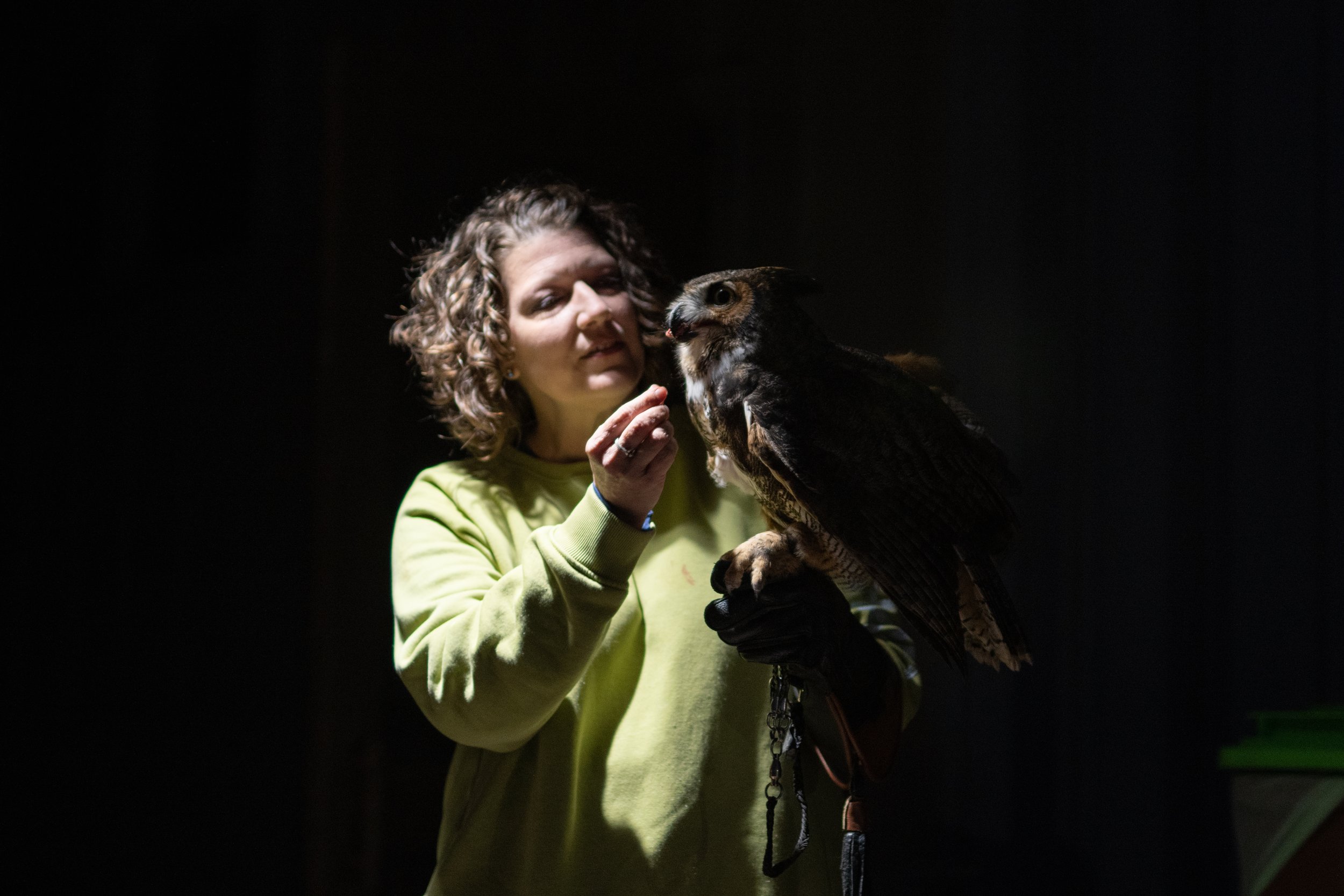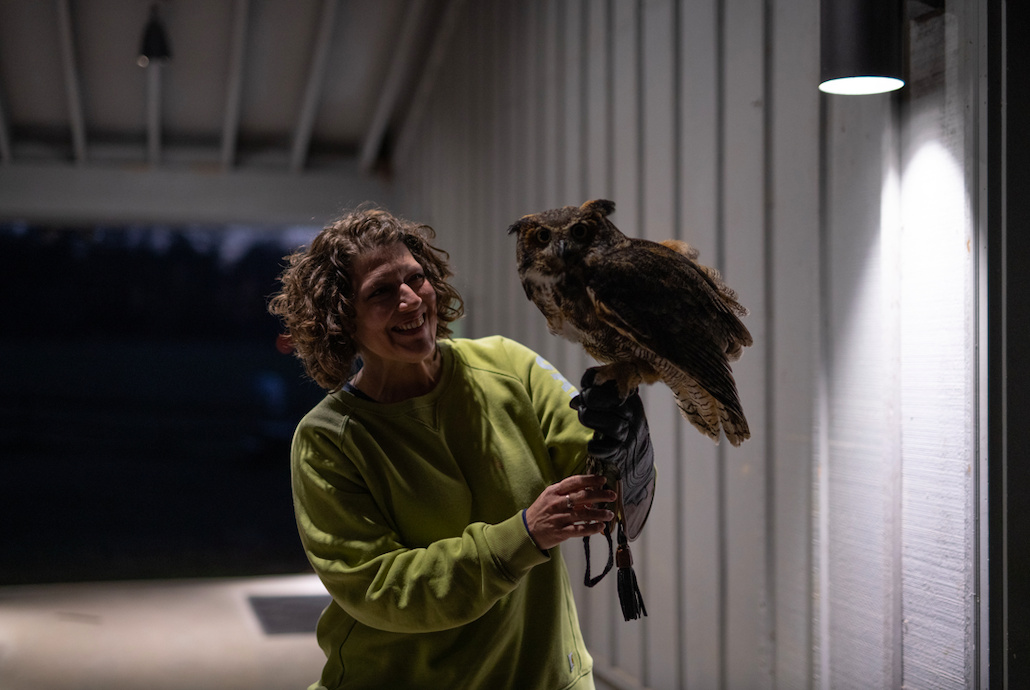Royalty on the Wing
The Great-Horned Owl (Bubo virginianus) is a magnificent sight to behold. As the largest nesting owl in Tennessee, the bird can weigh up to 3.8 pounds (which is considerably sizable for a bird of flight). The great-horned owl gracefully weaves among the trees, a silent ghost of the forest.
Last year, we welcomed one of these magnificent beasts to our team as an Animal Ambassador. Nala is a female great-horned owl, estimated to be nearly 8 years old. Her regal nature lives up to her namesake, which means “queen” in Swahili. Nala entered captivity at a young age due to a severe injury to her right wrist, permanently preventing her release into the wild. Formerly rescued by the Smoky Mountain Raptor Center, Nala entered our care on September 12, 2024.
Taylor Berry, our Wildlife Curator, knew upon meeting her that Nala would make an exceptional educator. On their first day together, she got on his glove–an outward expression of trust and willingness to work with people. Unlike most wildlife, Nala has been in human care for nearly her entire life. She has a partial imprint on humans, meaning she does not share the same fear of humans as other wild animals. Her confident demeanor makes her a wonderful candidate for educational group programs.
Since Nala’s arrival, our team has been hard at work so that she can feel comfortable and safe through voluntary participation. Our caretakers respect the trust account–every positive interaction with an animal is a deposit towards their trust, while every negative interaction is a withdrawal. By systematically increasing positive interactions, trust is built. Using food as a positive stimulus, our wildlife staff has steadily built her trust so that she can feel confident approaching a caretaker’s glove. She has been in several programs so far—her first being Follow the Fire (pictures below)—where she has already become a fan favorite!
As an apex predator, great-horned owls are vital to our ecosystem. By preying on small mammals, they control rodent populations. Without predators like these owls, infestations would occur. An overpopulation of rodents would then trigger the loss of vegetation and disease outbreaks. Of their many roles, great-horned owls make a stellar natural pest control!
There are many ways you can help support great-horned owls like Nala. Apical theory suggests that small actions influence the greater whole. A simple gesture, such as rejecting the act of littering, has lasting effects. When food waste is thrown out of cars, mice and other rodents will congregate near the roads. Drawn towards prey, predators then become at risk of traffic fatality. More direct efforts, such as planting native species in your yard, also benefit these birds. By promoting wildlife ecology, raptors can expand their hunting grounds away from roadways.




